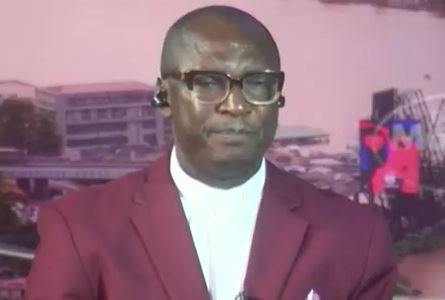The Chairman of the Christian Association of Nigeria (CAN) for the 19 Northern states and the FCT, Reverend John Joseph Hayab, has described the ongoing killings of Christians in Northern Nigeria as genocide, warning that denial of the violence is unjust to victims and their families.
Speaking in an interview on ARISE TV News on Wednesday, Reverend Hayab reacted to recent comments by US President Donald Trump expressing concern over attacks on Christians.
He stressed that religiously motivated violence has been ongoing for decades, predating Boko Haram.
“Can I consider what has been happening as genocide against Christians? And my straightforward answer is yes. Y-E-S, Yes,” Hayab declared.
He added that attempts to dismiss the killings as mere farmers-herders conflicts ignore the experiences of those who have buried the victims.
Historical Context and Ongoing Discrimination
Rev Hayab recalled major crises targeting Christians before Boko Haram, including the 2000 Sharia crisis in Kaduna and the 2002 Miss World riots, where hundreds were killed, churches burnt, and pastors slain. “I actually did the burial,” he said.
He noted that discrimination extends beyond violence. Christian children face barriers in accessing certain universities, and worship spaces in public schools are limited, forcing pupils to pray in classrooms.
The CAN chairman urged Nigerian authorities and society to acknowledge the violence as a first step toward solutions.
“If we acknowledge that Christians have been killed and truly, we’ve buried many, then we can start to correct it. But when you say there was nothing wrong, we will keep lying to ourselves,” he said.
Roots of Extremism
Tracing the roots of religious extremism to the 1970s, Hayab cited violent incidents such as the Maitatsine uprising, describing it as early terrorism.
He said Boko Haram later formalized such ideology, promoting the belief that anyone not following their brand of Islam is an infidel.
He also highlighted statements by religious leaders in the 1980s that fueled division.
“One particular leader came out publicly and said, according to Islamic teaching, a Christian cannot lead him and he cannot also be led by a woman,” Hayab said, noting how such teachings entrenched intolerance that persists in Nigeria today.
Rate, Like 👍, Comment 💬, Share this article, Follow us on our social media handles, and Submit your own story to get featured and earn rewards!







